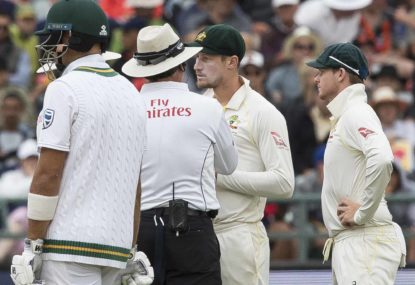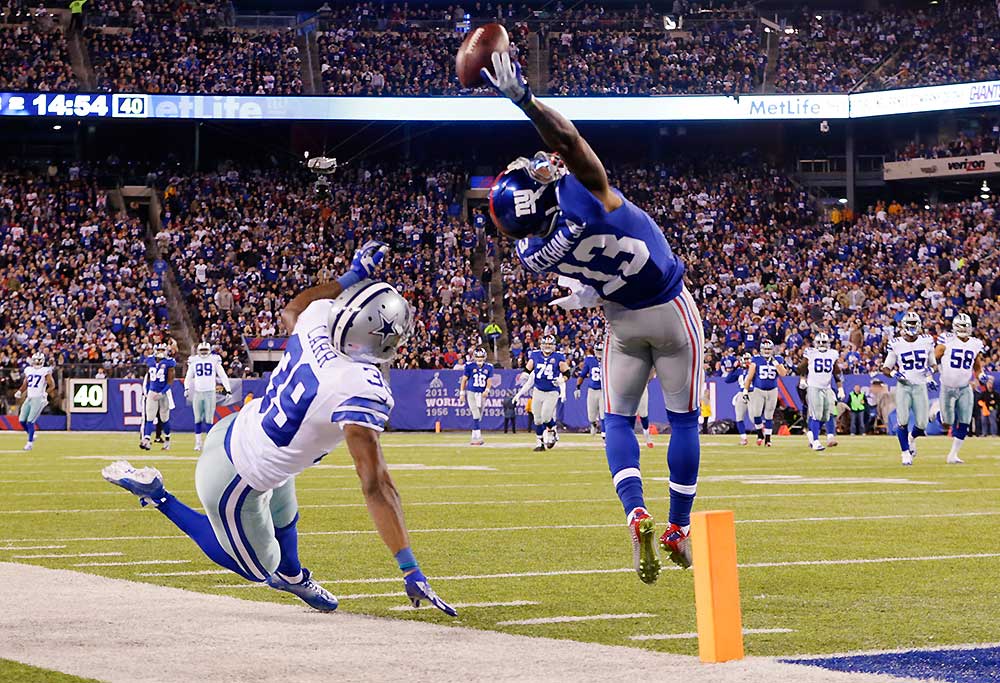World Cup chances up in the air but Smith makes Major call on T20 future, Green dumped despite huge IPL deal
Test great Steve Smith is to play for Washington Freedom in the second season of Major League Cricket as the Australian influence in the…

I write for the AFL and US Sports pages of The Roar, and I’m a lifelong American who happened to fall in love with Aussie rules from a distance more than 15 years ago.
I write about the AFL, AFLW, and American football, primarily major college football for The Roar, and I’ve watched, studied and written about a wide range of sports in my career.
My experience with cricket, however, is just barely enough to understand the way the game is played, although I appreciate good batting, bowling, and fielding when I see it. I learned most of what I know when the world came to Australia to play two autumns ago, and delayed the AFL season in the process. It’s not my cup of tea, frankly, but that experience helped me grasp what cricket fans love about the sport.
I thought you might be interested in this outsider’s reaction to ‘TapeGate’.
First of all, as an American, I’m amused that an Australian scandal taking place in South Africa is nicknamed after a 45-year-old political scandal from the second most embarrassing president in United States history. (Nixon was the most embarrassing until fifteen months ago.) The Watergate hotel in Washington DC was the scene of the break-in where Nixon’s thugs stole documents from the opposing party’s national committee.
As for the actual scandal, I completely get the severity of the offence, and the shame attached to it.

(Photo by Ashley Vlotman/Gallo Images/Getty Images)
The closest sport to cricket we follow in America is baseball, of course, and there have been all sorts of foreign substances applied to the ball by the pitchers – sandpaper, petroleum jelly, hair grease, you name it. And the penalty when the pitcher’s caught is usually immediate expulsion from the game and suspension for a relatively short number of games (single digits, certainly).
The mild reaction, I’d suggest, is the relative acceptance of such practices in comparison to cricket. For example, a famous pitcher named Gaylord Perry, now long retired, was famous as a ‘spitballer’ who freely admitted (outside of the lines) that he used various methods to “improve” the spin of his curveball.
On top of all that, every baseball is rubbed up with a specific red river mud before the game to give it some ‘texture’ ahead of time. So yes, tampering with the ball is an offence. Wink wink.
On the other hand, American football recently had a delightfully prolonged case about altering the texture of the football. The NFL has what I think is an insipid rule, campaigned for by famous quarterbacks Peyton Manning and Tom Brady, which allows each team’s offence to bring its own twelve footballs to the game and use them whenever their team is on offence.
Since in football the goal is to make the throw MORE predictable, rather than less as in cricket, the reason may escape the casual viewer.
Manning, who is nearly 200 cm tall with large hands, prefers to have the football at full inflation, at the top end of the legal range. Brady, several inches shorter with much smaller hands, far prefers softer footballs which he can grip more easily – as close to the softest legal pressure as possible.
During the 2014 playoffs, Brady’s New England Patriots defeated the Indianapolis Colts easily, 45-7, but at halftime the Colts’ defenders made note to the officials about the softness of the footballs, far flatter than allowed. As is often the case, the big problem became the subsequent cover-up (called ‘Deflategate’, of course) which forced Brady to spend four games suspended more than a year and a half after the original incident (the enforcement and appeals led all the way to the US Supreme Court, unbelievably).
How severe was the issue of the inflation level of the ball? Frankly, not all that much – the bigger problems were the coverup by Brady, which followed the stupidity of allowing the players to prepare the game balls. If, like the other one-ball sports of basketball, soccer/football, or volleyball, the officials were not only in charge of preparing the ball to be used but had ball in hand on a regular basis, it’s hard to imagine it being an issue.
On the other end of the sport, however, the use of ‘stickum’ and, more recently, velcro-like gloves for both the receivers and their defenders have created a wild west wasteland of various levels of rules and enforcement over the years.
The level of help allowed on the catching end right now is typified by the viral video of receiver Odell Beckham Jr’s three-fingered catch for the Giants against the Cowboys two years ago. Without the gloves now allowed the receivers, catches like that are physically impossible. I’m expecting a scandal of some sort along that line in the next few years.

(AP Photo/Julio Cortez, FILE)
But none of those stories exactly correspond to Bancroft’s apparent attempt at subterfuge to outright violate the rules of the sport at the highest level of competition; an attempt that seems to have involved far more than a lone wolf offender.
Without having any experience with previous cricket offence punishments beyond what I’ve read about over the last 24 hours or so, I’ll tell you my immediate reaction was to be surprised that the officials allowed Australia to continue competing in the Test at all.
Generally, if a competitor in a sport is engaged in an intentional act of cheating – not a mistake, not an accident, not a misunderstanding, but a blatant action of cheating, especially in a sport which (to this foreigner) seemingly reeks of proper decorum and gentlemanly behaviour – that should result in the forfeiture of the match by the cheating competitor(s).
Had a tennis player, a golfer, a chess player done something equally blatant, they might likely be escorted off the field of play.
Or maybe not.
On the golf course, there are sometimes hole-forfeitures in match play (rather than the full match) and two-stroke penalties for ‘improvement of lie’ situations. In team events, quite often it is just the specific offending player (and sometimes the coach) who is removed from play. Not being well-versed in the importance of these international Tests, I don’t know what the appropriate penalty is in this situation.
But to this novice, it certainly casts a far darker light on Australian cricket than Deflategate did on Brady and the Patriots (who some people suggested should have their league title revoked for the offence).
Regardless of the individual punishments for the players and coach involved, the national team will be looked down at internationally for years, perhaps decades.
And in a sport born of honour and decorum, that’s probably the worst penalty imaginable.